| |
|
FROM THE SIDELINES
The plight of Christians in Arab states
By Rabbi Dow Marmur
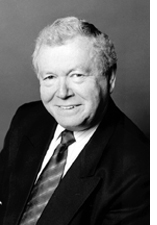 JERUSALEM—If you’re a Christian in the Middle East wishing to practice your religion in freedom and dignity, your best bet is to live in Israel. There all Christian denominations, whether or not they are Arab, have the same rights. Ironically, non-Orthodox Jews in Israel probably have a harder time of it. JERUSALEM—If you’re a Christian in the Middle East wishing to practice your religion in freedom and dignity, your best bet is to live in Israel. There all Christian denominations, whether or not they are Arab, have the same rights. Ironically, non-Orthodox Jews in Israel probably have a harder time of it.
Though many spokesmen stress the tolerant attitude of Islam, the reality in Muslim countries is said to be very different. Not only have virtually all Jews left or been driven out, despite their roots from time immemorial, but Christians, too, feel beleaguered.
The tensions between Christians and Muslims in Lebanon are behind the bloody unrest in the country and it’s quite obvious that the Christians are losing. Many Christians have quietly left the West Bank and Gaza and settled in other countries. This year, Easter in Gaza brought only a handful of Christians to Church. Bethlehem, once the most Christian of Palestinian towns, is now predominantly Muslim.
Christians who have remained in the territories are loyal to the Palestinian cause, at least outwardly. Some - like the soon-to-retire Michel Sabbah, the Latin Patriarch in Jerusalem, and the clergy at Jerusalem’s St George’s Anglican Cathedral - are vociferous and indiscriminate critics of Israel, and passionate defenders of the Palestinian cause. One can only speculate if Sabbah and the others would have been able to voice anti-government opinions in, say, Saudi Arabia or Iran.
It has always been a source of amazement to me that the powerful Christian denominations around the world aren’t doing more to protect their adherents who profess their faith under extremely difficult circumstances.
The reason I hear most often is that Christian leaders believe that the “softly-softly” approach by the outside is the best way to help Christians inside a totalitarian regime. I have a less charitable view: perhaps they’re afraid that by demanding safety for Christians and criticizing their Arab home countries that are hostile to Israel, they’ll appear to side with the Jewish state.
Jews have learnt the hard way that to grin and bear it is neither morally acceptable nor politically effective. The example of the former Soviet Union comes to mind. For many years we believed that not openly challenging the oppressive authorities was the best way to help Jews there. Thanks to courageous individuals within that realm we learnt otherwise. Once the world was alerted, and activists protested things changed. Christians could learn much from the Soviet Jewry campaign.
Which brings me to another uncharitable, but I fear not unwarranted, thought: perhaps Christian countries are afraid that they’d have to receive many Christian refugees. I surmise that it’s easier to pray for them than actually absorb them.
From my totally uninformed vantage point I get the impression that the Pope is frustrated by all this. His passive-aggressive attitude to Islam may reflect it. His strange “academic” lecture at a German university a couple of years ago could have been an expression of it. His vastly publicised baptism of a prominent Italian ex-Muslim this Easter Day may be another. For the public record, he advocates dialogue with Muslims. What he really thinks and feels is less obvious.
Dow Marmur is the Rabbi Emeritus of Holy Blossom Temple in Toronto, Canada. He divides his time between Toronto and Jerusalem.
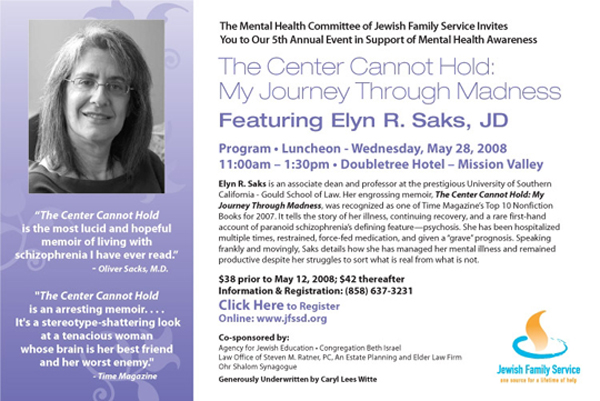

Obama's speech on race compares with John Kennedy's talk on his Catholicism
By J. Zel Lurie
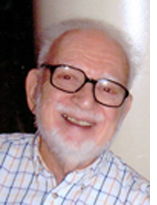 DELRAY BEACH, Florida—I recently wrote a letter to an associate on the board of the American Friends of Neve Shalom/Wahat al Salam who supports Barak Obama for President. I said that Obama’s speeches were like hollow reeds. Beautiful rhetoric flows through them leaving nothing behind. DELRAY BEACH, Florida—I recently wrote a letter to an associate on the board of the American Friends of Neve Shalom/Wahat al Salam who supports Barak Obama for President. I said that Obama’s speeches were like hollow reeds. Beautiful rhetoric flows through them leaving nothing behind.
The next day I had to eat my words. Speaking in Washington, Obama made a great speech on race and religion that ranks with the campaign speech by Jack Kennedy in 1960 to allay fears and superstitions about Catholics in the White House. President Kennedy built a wall between church and state which the current Republican in the White House has spent almost eight years trying to crumble .
Obama made a sweeping discourse on race in America from slavery to segregated schools which are still segregated and inferior fifty years after Brown vs. the Board of education. . He talked about his white grandmother, who brought him up and whom he loved dearly. He said he cringed when she used racial stereotypes to say that she feared meeting black men on the street.
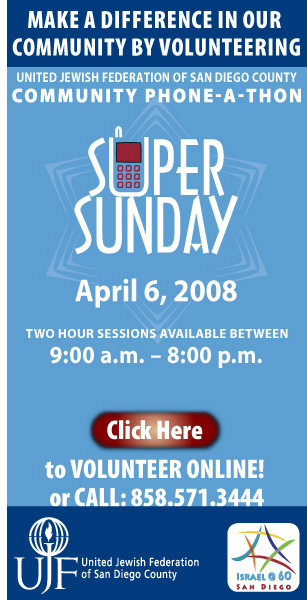 He denounced the rantings of his former pastor the Rev. Jeremiah Wright, which can be seen and heard on You Tube. Wright blamed 9/11 on a corrupt and racist United states. Some Jews have been disturbed by Wright’s description of the suffering of West Bank Palestinians who have lived under military occupation for forty years. He denounced the rantings of his former pastor the Rev. Jeremiah Wright, which can be seen and heard on You Tube. Wright blamed 9/11 on a corrupt and racist United states. Some Jews have been disturbed by Wright’s description of the suffering of West Bank Palestinians who have lived under military occupation for forty years.
Obama defended “our stalwart ally Israel.” He said that his recently retired pastor had a distorted view. “A view that sees the conflicts in the Middle East as rooted primarily in the actions of our stalwart ally Israel instead of emanating from the perverse and hateful ideologies of radical Islam.”
I am not running for President so I can shout from the rooftops: to the leaders of Israel. “END THE OCCUPATION.”
Obama continued: “The profound mistake of Rev. Wright’s sermons is not that he spoke about racism in our society. It’s that he spoke as if our society was static; as if no progress has been made ; as if this country -- a country that has made it possible for one of his own members to run for the highest office in the land and build a coalition of white and black , Latino and Asian, rich and poor, young and old -- is still irrevocably bound to a tragic past. But what we know, what we have seen, is America can change. That is the genius of this nation.”
Obama could have left it at that. A normal politician would have joined another church and moved on, But Obama is not a normal politician. He confessed that he did nothing to contradict the Rev. Wright when he heard a sermon denouncing American foreign policy with which he thoroughly disagreed.
I too have a confession. Last week on the CompanyA website I read a fellow member’s passionate statement advocating that Israel invade Gaza in full force with “the Middle East’s best army to teach the murderers an unforgettable lesson. Yes, there will be civilian casualties.” I didn’t bother to contradict him. Israel will not follow his murderous advice. Unlike the U.S. in Iraq and Israel in Lebanon for eighteen years, the Israel Army has learned its lesson well. Israel will never reoccupy Gaza unless it knows how and when it is getting out.
Back to Obama. The Rev. Wright inspired his Christian faith and made him a church-going Christian He officiated at his marriage and baptized his children. “I can no more disown him that I can disown the black community,” he said. “As imperfect as he may be, he has been like family to me.”
To sum up in the words of the New York Times editorial on March 19: “Mr. Obama drew a bright line between his religious connection with Mr. Wright, which should be none of the voters’ business and having a political connection which should be very much their business.”
In his eloquent speech he made it clear that he and the Rev. Wright trod different political paths. As I said at the beginning I sometimes wondered whether Obama’s charismatic rhetoric had any meaning. Not this time.
Two families in Hebron
Today a communication arrived from the Christian Peacemakers Team in Hebron about two suffering families, one Jewish and one Moslem.
Peacemaker Jean Fallon writes about the murder of eight young yeshiva bokhers in Jerusalem:
“This latest assassination in the Israel-Palestinian circle of violence had a great impact on the CPT Delegation in Hebron, It had an even greater impact when the CPT Delegation learned that one of the eight was the 16-year-old son of Rivka, a kindly settler woman who has regularly invited he Delegation to her settler home. In her sorrow, she invited the Delegation to come sit shiva with her.”
As they were leaving, a Palestinian man arrived escorting a woman whose home had been invaded by Israeli soldiers. They tore the place apart, said the woman and took away her four sons. She doesn’t know where they are and whether they are alive or dead.
The peacemakers put her in touch with people who can find her sons. Then they stood and prayed with the Palestinians and left to pray with Rivka.
Fallon saw Mary, the mother of Jesus, receiving her dead son from the cross. “Her tears washes his face as she mourns his short life,“ writes Fallon. “With this vision before us, we stand beside two mothers, one Israeli, one Palestinian.”


PETE'S PLACE
Israeli historian's theory on origins of Jewish people has important implications
By Peter Garas
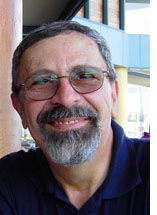 CANBERRA, Australia—I have been fascinated, every since encountering the views of San Diego Jewish World editor Don Harrison, by his conviction that: "There is a Jewish story everywhere." CANBERRA, Australia—I have been fascinated, every since encountering the views of San Diego Jewish World editor Don Harrison, by his conviction that: "There is a Jewish story everywhere."
My initial reaction to this claim was that it was probably viable and that I would do my best to find such connections in the ordinary day-to-day events that make up my life, and then submit my humble offerings for consideration.
Then some news popped up on the radar - news from Israel - news about a new take on the Jewish diaspora.
According to the Tel Aviv University historian, Prof. Shlomo Sand, author of Matai ve'ech humtza ha'am hayehudi? Jews now living in Israel and other places in the world are not at all descendants of the ancient people who inhabited the Kingdom of Judea during the First and Second Temple period. Their origins, according to him, are in varied peoples who converted to Judaism during the course of history, in different corners of the Mediterranean Basin and the adjacent regions.
According to Sand, not only are the North African Jews for the most part descendants of pagans who converted to Judaism, but so are the Jews of Yemen (remnants of the Himyar Kingdom in the Arab Peninsula, who converted to Judaism in the fourth century) and the Ashkenazi Jews of Eastern Europe (refugees from the Kingdom of the Khazars, who converted in the eighth century).
Let's just for the moment, not argue about the conclusions of Prof. Sand - let's just say that he is right! What implications do his findings and conclusions have for those of us who are sitting in our bathrobes having breakfast and looking forward to another ordinary day?
The thesis for me at least brings into sudden focus at least one question which has plagued me since childhood - this being, what is the difference between a "Jew," defined as being someone born of a Jewish mother and a "Jew" being defined as someone who has read about, heard about, inquired about Judaism and then, on the basis of his/her study has sought conversion to Judaism from a groundwork of actively sought knowledge?
Is someone who has actually chosen Judaism as his or her system of beliefs "better" or "worse" than someone who can just claim adherence to the "Jewish People" as a consequence of mere birthright?
This is a serious question for those in the Jewish communities around the world who most arrogantly (in my view) even pose the question.
In my own case I am supposedly descended from the "Cohanim" those 'princes' of Judea who were the traditional leaders of the Jewish people, those who are invited first to the reading of the Torah, those who claim an unbroken link back to King David and beyond.
Well no offence meant to anyone, but in spite of years of study on the subject - I can't prove my own connections that far back in history much less the connections of anyone else. So for years I have taken it as an act of 'faith' that what I was told by my parents is what I can tell others about my ancestry and "place" in the world.
The question is, am I lying to myself and others, or is what I am saying supported by factual reality?
To be perfectly honest - I have no idea.
Once we ask this question -yet more interesting questions arise - for example:
- Is a conversion only "proper" when it is conducted by means of an Orthodox ceremony?
- Is a conversion of less 'value' and/or 'significance' when conducted by another section of the faith?
Does it all matter anyway, if most of the people having this debate are themselves the children of converted parents somewhere back in historical time?
One other question which arises of course is whether or not the very foundations of the nation state of Israel — the perception that it is the ancestral "home' of the Jewish people— is an accurate representation of reality or merely the end result of a series of "myths" about the Jewish people?
Prof. Sand suggests that the notion of "the Jewish people" is actually an 'invention.'
When was it invented, in Sand's view? According to a story in the March 24 edition of Ha'aretz, the modern Jewish people were an invention created in retrospect by German Jewish intellectuals, reacting to German Christian nationalism. This intellectual "invention" became so well accepted that it is quoted in the Preamble to Israel's Declaration of Independence: "After being forcibly exiled from their land, the people remained faithful to it throughout their Dispersion and never ceased to pray and hope for their return to it and for the restoration in it of their political freedom"
Wow - what a story - Jews and Judaism may not be what they seem to be, the nation state of Israel may not be what it seems to be and what's worse, the claims of the Palestinians to the land which now constitutes Israel may be valid, and the Palestinians' own history may show them to be descendants of the Jews who lived in that area. Wouldn't that be a hoot?
I want to buy Prof. Sand's book—preferably in translation—so that I can delve into its depths and see whether for me at least, the notion that "there is a Jewish story everywhere" suddenly takes on new and more interesting meaning!


THE JEWISH CITIZEN
'Brain Death Bill,' conversion to Judaism highlights in life, career of Dixon Arnett
By Donald H. Harrison
 SAN DIEGO—Dixon Arnett has been a California legislator and has held high positions in the executive branches of both the federal and California governments. Now 70, he says two of his most indelible memories are his legislative success in facilitating organ transplants and his conversion as an adult to Judaism. SAN DIEGO—Dixon Arnett has been a California legislator and has held high positions in the executive branches of both the federal and California governments. Now 70, he says two of his most indelible memories are his legislative success in facilitating organ transplants and his conversion as an adult to Judaism.
Arnett was a Republican assemblyman from Redwood City in 1973 when two murder cases threatened to stop many organ transplant and thereby prevent the saving of lives in California. There had been two fatal shootings, and in both cases, the defense attorneys argued that it wasn’t the shooters who killed the victims, it was the doctors who harvested their organs,
Although the juries decided to find the defendants guilty of second-degree murder, the cases left undetermined whether doctors could be held liable for homicide if they used “brain death” rather than heart stoppage as a criterion for determining when a patient was legally dead. And with that potential liability hanging over their heads, doctors were reluctant to perform any more transplants.
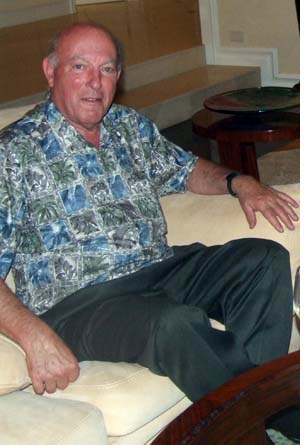 Arnett said he responded to the situation by offering a one-page bill clarifying that, indeed," brain death" was recognized in California law as one criterion for determining whether life has ceased—even if the patient’s heart was still beating. Arnett said he responded to the situation by offering a one-page bill clarifying that, indeed," brain death" was recognized in California law as one criterion for determining whether life has ceased—even if the patient’s heart was still beating.
He needed two-thirds of the Legislature to vote for his bill in order for it to take effect immediately, and in the Assembly that meant 54 votes. In a three-hour debate on the subject—as Arnett recalls, longer than it took to adopt the state budget that year—his chief adversary was Assemblyman John Miller (Democrat-Berkeley), a liberal Democrat. Miller said passage of the legislation would be tantamount to the Legislature playing God. Arnett responded that the only reason to define death in law was to preserve life.
The vote was tallied electronically, and there were only 51 ayes. But there were also three members present who hadn’t voted. In a tense and suspenseful atmosphere, Arnett rounded up one of the missing voters, Jack Fenton (Democrat-Montebello), who in turn helped him persuade the other two. Later, the
bill went to the state Senate where it was handled by Senator George Moscone (Democrat-San Francisco), who later would be assassinated while serving as mayor of San Francisco. Moscone was able to obtain the necessary 27 votes in the upper chamber of the California legislature without much difficulty.
The next step was to persuade Governor (and future U.S. President) Ronald Reagan to sign the legislation. Reagan and his wife, Nancy, were planning to visit over the Thanksgiving Weekend with her father, Dr. Loyal Davis, a neurological surgeon. Arnett phoned Davis to ask for a 15-minute appointment to explain the need for his bill. The request granted, Arnett flew to Chicago, rushed from the airport to Davis’ offices, made his presentation, and rushed back to the airport to return to California.
After the Thanksgiving weekend, Arnett received a phone call from Reagan.
The governor said he didn’t believe the subject was one that was tailor-made for a public signing ceremony, so he went ahead and signed it on his own. “Your bill is law,” Arnett remembers Reagan saying.
There is an axiom in Judaism that “to save one life is as if to save the world.” Anyone who does family genealogies and has been successfulin tracing back six or more generations knows exactly what that means. In our interview, Arnett said that as he reflected on the impact that his legislation might have on the lives of others, he began to cry. A woman serving as his administrative assistant came into his office, and, misunderstanding, started to say words comfort. “No,” responded Arnett “you don’t understand. He didn’t veto it; he signed it.”
Asked to compare Reagan as governor with his successor, Jerry Brown, Arnett said the two had styles as different as night and day. If a legislator wanted to meet with Reagan, he normally could do so within a fairly short period—less than a week. The appointment would be for exactly 15 minutes. Reagan would tell a joke, and then the legislator would state his request. Reagan would answer.
With Brown, on the other hand, appointments would take much longer to get, and instead of being for 15 minutes, they often would go on for more than an hour—typically at Brown’s instigation, rather than the legislator’s. Brown liked to put his feet up on the coffee table and b-s about many subjects, almost like being in a fraternity house or a college dorm, Arnett said. “I don’t know if h is still like that today.” After leaving the governorship, Brown stayed out of politics for a while, then got himself elected as mayor of Oakland and now serves as California’s state attorney general.
Arnett served four terms in the Assembly, and then went to Clairemont Men’s College to serve as an administrator. But public life beckoned to him again after Reagan was elected as president. Eventually he joined the Department of Health and Human Services as a deputy undersecretary in charge of intergovernmental relations with the states and territories. It was a job in which he spent countless hours in airplanes. Among his duties was hammering out Medicaid agreements between the federal and state governments. After Pete Wilson was elected by Californians to the U.S. Senate, Arnett went to work on his staff, and thereafter opened his own business as a government consultant. He was not a lobbyist, he clarified. He advised clients who to see in government or what to do, but he himself stayed in his office.
It was during this time in Washington D.C. that Arnett decided to convert to Judaism. The great-grandson of a Presbyterian minister, he had been interested in religions since his student days at Stanford University studying under Christina Harris. His professor had gained an insider’s view of the Middle East and its religion, while her husband served in Mandatory Palestine as an aide to the British governor-general.
In what he described as a 30-year odyssey, Arnett took courses on religions, attended coffee klatches and seminars with religious leaders, and eventually came to the conclusion that the concept of “one God” in Judaism was the “fire under the pot” of all monotheistic religions. He began to study Judaism in earnest with a rabbi at Georgetown University.
Conversion was a matter of considerable commitment. “I had to be ‘circumcised’ again,” a procedure for those who have been circumcised as infants involving the taking of a drop of blood from the penis, Arnett recalled “The problem was that he didn’t get the blood the first time so he had to do it twice, which was not a lot of fun. It tested my perseverance.”
The following day he went to a mikvah in Bethesda, Maryland, where he was questioned by a beth din consisting of three rabbis. “At one point, after all the words have been said, you go into a mikvah and you are asked to immerse yourself in the water. You have a yarmulke on, and the rabbi leans over and he takes the yarmulke off the top of your head while you immerse yourself, and then when you come back up he puts the yarmulke back on—God forbid the yarmulke should get wet—and then he leaves. ‘Take your time, take hours if you want. Come out when you want to.’
“And there I was alone with my God, naked as a jaybird, by myself… I took about an hour and a half, not really praying, just thinking, came out, got dressed, went out, and the three rabbis were at this table, a little card table. Were they there for a whole hour and a half? Did they go out for a cup of coffee or a cigarette, or whatever? I don’t know. But they were all there and there were papers to be signed. We did that for a minute and I said, ‘that’s it?’ ‘That’s it.’ And in one sense I was sort of disappointed because I thought there ought to be bells clanging and cymbals sounding and something happening, and no, you were alone with the decision you had made. It was yours and there was respect for it, thorough and complete.
“I remember walking out of the parking lot, and if I were the kind of person who could kick up my heels and shout, like I was a cheerleader at a football game, that is what I would have done. I walked over to the car and I sat in the car, and I really couldn’t drive for a while.”
After Pete Wilson was elected as California’s governor, Arnett was tapped to serve as director of the state’s Medical Board, and later became director of the California Department of Aging—a position that later led to his becoming a professor of gerontology at San Diego State University.
Living today in San Diego with companion Wendy Chan, Arnett says he is not a “ritualist,” but instead takes a more secular approach to religion. He does not attend synagogue, but sometimes he and Wendy, who is not Jewish, say Shabbat prayers together on Friday nights. Having become a Jew by choice, says Arnett, “I have made the connection—that is what is important to me.”

THE PEOPLE OF THE BOOK
Chabon's latest is a fast-moving mystery that raises troubling quesitons for Jews
Yiddish Policemen's Union by Michael Chabon; HarperCollins Publishers, 414 pages, $26.95.
By David Strom
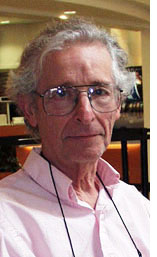 SAN DIEGO--Meyer Landsman, an alcoholic homicide detective with the Sitka police department, lived in flea-ridden hotel. A murder occurred at the hotel, so Meyer investigated. The youngish man, Emmanuel Lasker, was found shot and Meyer suspected it was murder, probably by a professional who shot the victim at close range. Landsman also observed track marks on the arm of the victim, packets of heroin, an open chessboard in mid-game, and a beat-up copy of Siegbert Tarrasch's book, Three Hundred Chess Games. Landsman, the son of a former chess aficionado, noted the odd position of the chess and wondered. SAN DIEGO--Meyer Landsman, an alcoholic homicide detective with the Sitka police department, lived in flea-ridden hotel. A murder occurred at the hotel, so Meyer investigated. The youngish man, Emmanuel Lasker, was found shot and Meyer suspected it was murder, probably by a professional who shot the victim at close range. Landsman also observed track marks on the arm of the victim, packets of heroin, an open chessboard in mid-game, and a beat-up copy of Siegbert Tarrasch's book, Three Hundred Chess Games. Landsman, the son of a former chess aficionado, noted the odd position of the chess and wondered.
Landsman, at that point in his life, worked to live. Without the warmth and closeness of Bina Gelbfish. his ex-wife, he was a lost soul. They loved each other but Mayer did not love himself as he was mired in remorse. He couldn't live with the guilt of their deciding to abort their unborn child due to a potentially devastating problem in the unborn boy's chromosomes.
Meyer's police associate, half-Tlingit, half-Jew Berko Shemets, was pulled into the investigation. Berko, a religious Jew and a first cousin to Meyer, suspected that the dead man's name was not Emmanuel Lasker. He was correct, of course. The dead man was really Mendel Shpilman, the famous son of the Verbover rebbe.
The Verbover rebbe was the head of a Hasidic sect that ruthlessly ruled the Sitka region and the islands of Jacoby and Verbov. They ran organized crime. Mendel, his son, was disowned by the rebbe many years earlier. (On the night of his arranged marriage, Mendel did not show up. Instead he disappeared and disgraced his family, the intended bride and most of all the Verbover Hasidim.) When the rebbe was notified of his son's death, it did not seem to bother him too much. However, Mendel's mother took Meyer aside and asked that he find the killer/s of her son. She told Meyer her son was gay and that he was tired of being groomed as the next Messiah. And so he left the fold the night of his intended marriage. Her son-in-law, the right-hand man to the rebbe, was now next in line to inherit the Verbover dynasty. The son-in-law struck Meyer as arrogant, cruel, and capable of murdering those who might stand in his way to power.
Bina Gelbfish, Meyer's ex-wife, was the commanding police officer in Sitka. She ordered them off the case after learning that Meyer and Berko had informed the Verbover rebbe and others that Mendel was murdered. This occurred after interrogating possible suspects—some of whom had powerful allies— and after traveling to the Verbover controlled territories. Meyer had been beaten, imprisoned, and shot at by Verbover toughs. The homicide department was ordered to close or trash all unsolved murder cases within two months, after which Sitka land would return to American control.
Bina wanted the Shpilman case closed, Meyer did not. When she ordered him off the case, he refused to give up his investigation. She took his badge. He continued on. He discovered that Naomi Landsman, his sister, flew Mendel Shpilman to a Verbov Island where he was to get treatment for his addiction. But the next day Mendel suddenly left the island and was flown back to Sitka by Naomi. The following day Naomi, a very experienced pilot, was killed in a mysterious air crash. Meyer believed the death of his sister and the murder of Mendel were connected.
A determined Meyer finally unearthed who killed Meyer Shpilman and why. Also, he discovered why the Verbovers were so secretive about their farm holdings, why they were getting ready to return to Jerusalem, why they thought the Messiah was returning soon, and why they made deals with the American government after Sitka reverted to the U.S.A.
Michael Chabon's book is an interesting mystery novel. His detective, Meyer Landsman, is hard-nosed, lovable, and dangerous to himself. He lives in a world that generally is either black or white, while he, a skeptic/atheist, is quite gray. The "Black Hatters," as he calls the Verbover Hasidim, are very "black" in a snow-covered world. Is Chabon trying to tell us something about religion or about Hasidism? Is the "Third Temple" on its way? Is he telling American Jewry not to feel completely safe in the United States as it might just turn out to something like Nazi Germany?
The readers of this book can enjoy it even if they know very little Yiddish. Street names and places in Sitka, names of hotels and places of enjoyment have connections to modern Jewish history, yet this is not important to enjoying this well-done novel. Like Phillip Roth's The Plot Against America, Chabon's book is a rewrite of Jewish history, but readers are left to wonder if the book contains a broader political message. Do these two writers see our country's race toward suspension of democratic rights since the invasion of Afghanistan and Iraq as a prelude to the death of all human rights for Jews in our country? We can only hope that this is not the case, but the implications of this fictional account are worth considering.




L.A. BEAT
Harry Boychick has a raucous bar mitzvah every Sunday in interactive Hayworth play
By Cynthia Citron
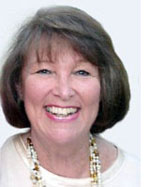 LOS ANGELES — You don’t have to be Jewish to hate a Bar Mitzvah, but it certainly helps! Especially if you don’t know the Bar Mitzvah boy, his parents, his grandparents, his aunts, his uncles, his cousins, his pre-teen friends, or even the lesbian rabbi and her partner. LOS ANGELES — You don’t have to be Jewish to hate a Bar Mitzvah, but it certainly helps! Especially if you don’t know the Bar Mitzvah boy, his parents, his grandparents, his aunts, his uncles, his cousins, his pre-teen friends, or even the lesbian rabbi and her partner.
Such a motley group of relatives, friends, and strangers gathers every Sunday at The Hayworth Theatre in Los Angeles to carry out The Boychick Affair: The Bar Mitzvah of Harry Boychick, and what they undertake is improv at its very best—or at least, improv at its very loudest. As is traditional at every Jewish event, nobody ever stops talking—or shouting. Or schmoozing at the top of their lungs.
Even when the religious service begins in the makeshift synagogue, members of the extended family, seated among the strangers in the audience, continue to shout out comments to one another, upstaging both the rabbi and the Bar Mitzvah boy. Undaunted, Harry (played by poised 19-year-old Greg Mikurak) recites his portion of the Torah in a rap beat, thanks his family, and stands by patiently as his divorced parents take turns waxing eloquent about him. So far so good, and Rabbi Jules (Janice Markham) leads the gathering to the reception hall for the traditional celebratory meal.
But first, everybody dances! The hora, of course, and the macarena, but surprisingly, not the bunnyhop, which is usually mandatory at any Jewish celebration. Various members of the family sing and tell stories and are called to the small table down front to light one of Harry’s birthday candles. And the noise continues, as family members engage in snatches of conversation, cross-conversations, and lots of kibitzing.
Amy Lord, who wrote and directed this interactive special event, plays Harry’s mother Cheryl, who tries to control the goings-on as well as the outrageous behavior of her ex-husband Aaron (played by Barry Papick). Aaron has imprudently brought his new girlfriend, Penelope, young and Catholic, to the affair. Penelope is played by Tara Peters, and she staggers the family by presenting the Bar Mitzvah boy with a large portrait of Jesus and imploring him to accept Jesus as his savior before it’s too late. “There’s still time!” she pleads.
And finally, it’s time to eat. Aaron, who is apparently close to bankruptcy, has failed to pay the caterer, and it looks like the meal will not be forthcoming. But family friend Tito (Carlos Luis Orrala) steps forward to save the day, providing a full Mexican meal to the entire company. Rice and beans, chicken quesadillas, salmon, vegetable tortillas, salad, and flan for dessert. Now that’s what I call interactive! The food probably wasn’t kosher, but it was certainly delicious. And while there was no chopped liver or gefilte fish, there was also no shrimp cocktail. A blessing on his head!
More dancing, and then, a final provocative fillip, as members of the family step forward to divulge a series of bizarre secrets and the action takes a turn for the unexpected.
And one more thing that was unexpected: I actually enjoyed this raucous Bar Mitzvah. Go figure!
This bright cast of 23 will be bringing you The Boychick Affair: The Bar Mitzvah of Harry Boychick every Sunday at 2 p.m. indefinitely at the Hayworth Theatre, 2511 Wilshire Blvd. in Los Angeles. Call 800-838-3006 for tickets.


SAN DIEGO JEWISH WORLD THE WEEK IN REVIEW
Donald H. Harrison in Oceanside, California: The real importance of the Easter bunny
Natasha Josefowitz in La Jolla, California: The 'clonal effect' in Election 2008
Lloyd Levy in London: Ongoing hostility to Israel in British media
Sheila Orysiek in San Diego: Bella Family: The Revolt of the Cousins
Jay A. Waronker in Maputo, Mozambique: Restoring a synagogue in Mozambique
Carol Davis in Vista, California: You never can tell... or should you?
Donald H. Harrison in Rancho Santa Fe, California: Mom, 80, helped arrange surprise party for her 80-year-old son, the writer
Dov Burt Levy in Salem, Massachusetts: Issues in the wake of terror last forever
Janet Tiger in La Jolla, California: Sculptor Shirley Lichtman becomes subject of JCC art exhibit only a day after her death
Gidi Yahalom in Kibbutz Beit-Alfa, Israel: Pig's Testimony: Why Jews Don't Eat Pork
Judith Apter Klinghoffer in Cherry Hill, New Jersey: McCain's foreign policies score with Jews
Rabbi Baruch Lederman in San Diego: Harry S Truman: The American Cyrus
Rabbi Dow Marmur in Jerusalem: John McCain: A true friend of Israel
Sheila Orysiek in San Diego: The Four Big Questions; One Great Answer
Rabbi Leonard Rosenthal in San Diego: Purim riddle: Did Tanakh predict baseball?
Ira Sharkansky in Jerusalem: Palestinian-Israeli friction points range from cell phones to the right of return
Thursday, March 20, 2008 (Vol. 2, No. 69)
Carol Davis in San Diego: Music, dance numbers overcome tedious plot lines in Globe's Dancing in the Dark |
|

 —
—